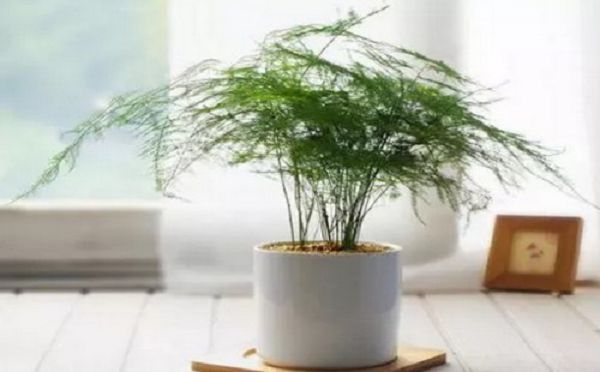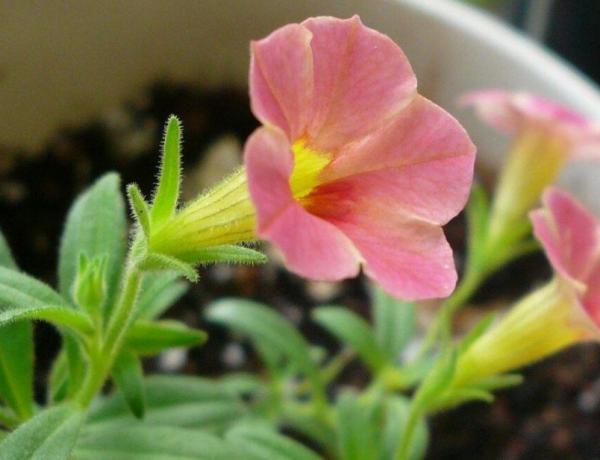How to make bamboo sprout from the roots

Potted asparagus is elegant, chic and handsome, which is of great ornamental value. It can be said to be the greatest treasure in the eyes of ancient and modern literati. If asparagus sprouts and grows young plants from the roots, it can not only enrich the whole plant type, but also breed more potted plants.
In fact, in order to achieve the purpose of sprouting asparagus from the root, it is usually only necessary to do a good job in the management of lighting, watering and fertilization. of course, if it can be properly supplemented by pruning means, the effect will be more obvious. So, today, the editor will share with you the maintenance and management skills of asparagus sprouting from the roots.
I. Illumination
Asparagus likes to grow in a cool and ventilated environment, so it is more suitable to be placed in a place with bright light and smooth ventilation. However, in order to promote root germination, it is often necessary to provide some light protection. And the lighting time is not the longer the better, every morning and evening can let it receive 1-2 hours of soft light, especially the need to avoid direct glare. As long as the suitable light conditions are satisfied during the growing period, it often creates the necessary conditions to promote its root germination.
Second, watering
The usual watering of asparagus should be moderate, not too much, otherwise it is easy to cause rotting roots, and the amount of water each time is often determined according to the dry and wet state of the basin soil and the growth status of asparagus. Generally, a small amount of water is watered for 3-5 times and then watered for 1 time. Especially in summer, on the one hand, asparagus grows vigorously and consumes more water in summer; on the other hand, the temperature in summer is also relatively high, and besides absorbing more water, the evaporation of water is also relatively large, so it is necessary to increase watering appropriately to ensure that there is enough water to maintain the normal growth of asparagus.
III. Fertilization
Although asparagus does not like fertilizer very much and does not rely on fertilizer to a great extent, it is often limited by the size of the flowerpot and the amount of soil in the pot, which may lead to the inability to meet its growth needs when nutrients are constantly consumed. Especially when it is necessary to promote the germination of new buds from the roots, reasonable topdressing can often promote germination to a great extent.
However, the fertilization of asparagus should adhere to the principle of thin fertilizer and frequent application, especially the concentration should be controlled. Because if the concentration is too high and the fertility is too strong, it may lead to the withering and yellowing of the branches and leaves of asparagus, mainly because of the strong fertilizer effect and the result of root burning. In order to avoid this phenomenon, on the one hand, we should control the concentration, on the other hand, we also need to choose appropriate nutrients. Usually in the growing season, some thin mature cake fertilizer, hoof solution and other organic liquid fertilizer are applied.
The topdressing of young plants can be kept once every 15-20 days, while for perennial asparagus, it can be irrigated once every 10-15 days. But at the same time, it is also suggested to apply alum fertilizer and water once a month instead of topdressing, which can not only improve the acidity and basicity of basin soil, but also promote the growth and development of plants.
Through the combination of loosening soil treatment for potted asparagus, timely and appropriate intake of a small amount of compound fertilizer and mineral additives; at the same time, move it outdoors on a sunny morning, provide it with 1-2 hours of light, and water it scientifically and rationally. it can often make asparagus sprout quickly from the roots and grow new stems. It can be seen that what kind of asparagus we want to develop is often closely related to our targeted adoption of relevant conservation measures.
Related
- Fuxing push coffee new agricultural production and marketing class: lack of small-scale processing plants
- Jujube rice field leisure farm deep ploughing Yilan for five years to create a space for organic food and play
- Nongyu Farm-A trial of organic papaya for brave women with advanced technology
- Four points for attention in the prevention and control of diseases and insect pests of edible fungi
- How to add nutrient solution to Edible Fungi
- Is there any good way to control edible fungus mites?
- Open Inoculation Technology of Edible Fungi
- Is there any clever way to use fertilizer for edible fungus in winter?
- What agents are used to kill the pathogens of edible fungi in the mushroom shed?
- Rapid drying of Edible Fungi



